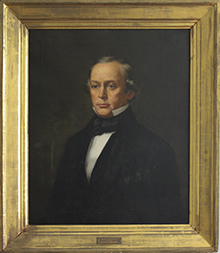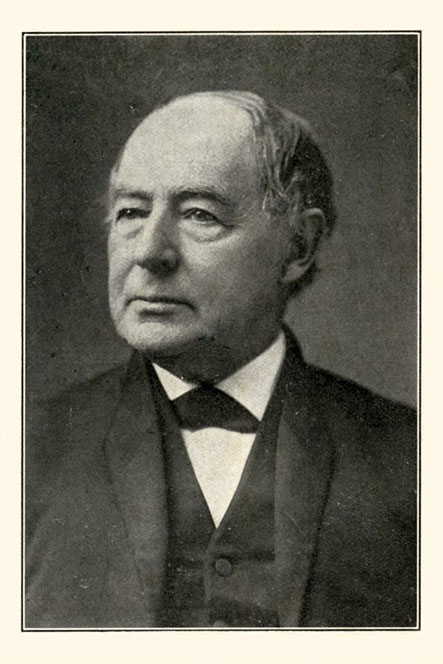Joseph Wright Taylor (1810-1880)
Founder
New Jersey Quaker
Joseph W Taylor (1810-1880) was inspired to found a college for Quaker women after attending an 1872 lecture on higher education at Haverford. He envisioned a school that would instill the Christian morals and refinement necessary to train exemplary mothers and teachers who could influence society through the dissemination of Quaker values. He made official his intention to found such a school five years later, at the first Quaker Educational Conference.
“…care should be taken to educate Young Women to fit them to become Teachers of a high order, and thus to extend the good influence of this Institution far and wide through them.”
Will of Joseph W. Taylor, 1877. Haverford College Quaker and Special Collections, Taylor Family Papers, MC.962.

Taylor was trained as a medical doctor, but he made his wealth in his brother’s tanning business. He never married and left most of his estate to the College, but worried the endowment was insufficient. He lived to see built the foundations laid for only two buildings. Following his death, the execution of his will was left up to his eleven hand-picked Trustees, who augmented Taylor’s legacy with their own visions and ambitions.


Francis Thompson King (1819-1891)
First President of the Board of Trustees
Baltimore Quaker
Francis T. King (1819-1891) was a member of the first class at Haverford College (graduated 1835). He was a successful businessman and a prominent Quaker philanthropist, who served on the original board of Johns Hopkins University (founded 1876). Through his work with Taylor on Haverford’s Board of Managers, King became a close friend and advisor in the early planning of Bryn Mawr. With Taylor, he toured women’s colleges in the United States, finding particular inspiration for campus organization and design at Smith. After Taylor’s death, King was elected President of the Board of Trustees.
A devout Quaker, King justified his wealth through his charity, recounting that his earliest earnings were used to buy and free an enslaved young man he had known in childhood, who wrote to King for help. He understood his wealth as divinely granted to enable philanthropic dispersal, although his writings reveal a paternalistic attitude toward women and non-white people.
King was a cousin of James Carey Thomas, M. Carey Thomas’ father.

“I consider that money has been God’s special gift to me, and my stewardship in it has given me constant pleasure and satisfaction.”
-Francis T. King reminiscences, after 1843, Special Collections, Johns Hopkins University, MS-0322
